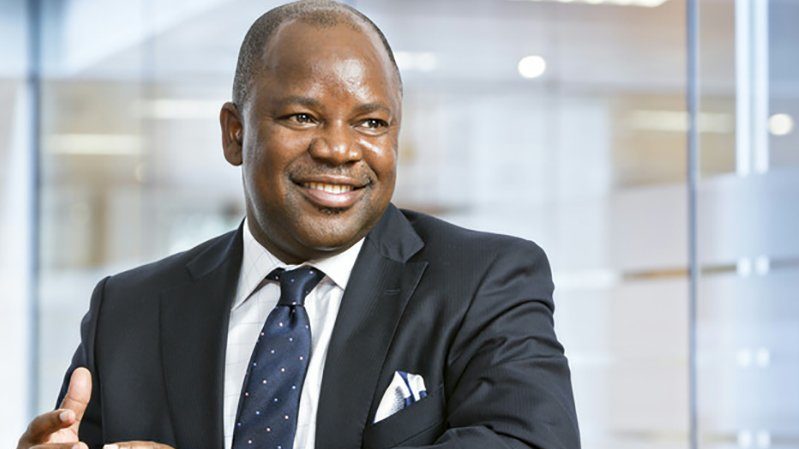Asset managers touting ESG enjoy a turbo-charged coal boom

As one of the world’s top-performing coal companies embarks on an expansion plan, investors who have pledged to target a low-carbon future are helping finance its growth.
Since being spun off by Anglo American Plc in mid-2021, Thungela Resources Ltd. has soared close to 900%, which is more than most other major coal stocks. Now, Chief Executive Officer July Ndlovu is promising to ratchet up production through the end of the next decade at least, as the company’s first acquisition since its solo listing gives it a controlling interest in the Ensham thermal coal mine in Australia.
Siphelele Mhlongo, an equity analyst at Thungela holder Sanlam Investments, reckons the stock is currently “trading at an extremely depressed valuation.” But as demand from Asia soars, he says “thermal coal supply is likely to be insufficient” for years to come.
If the analysis holds, Thungela’s coal expansion looks set to enrich a group of investors who have committed to slash their financing of greenhouse-gas emissions over the coming decades. These include BlackRock Inc., abrdn Plc and State Street Corp., all of which are members of the world’s biggest climate finance coalition, known as the Glasgow Financial Alliance for Net Zero.
The United Nations Intergovernmental Panel on Climate Change and the International Energy Agency have made clear there’s no room for expanding coal production if the world is to achieve net-zero emissions. Ignoring that warning risks driving global warming above the critical threshold of 1.5C, beyond which climate catastrophe lies.
“Whether active or passive, any asset manager that claims to take ESG seriously should be demanding credible 1.5C aligned transition plans from any coal-related investments,” said Peter Uhlenbruch, director of financial sector standards at ShareAction, a nonprofit focused on environmental, social and governance issues.
BlackRock, which excludes Thungela from its actively managed and ESG-branded funds, declined to comment on why roughly 2% of the coal producer is in its passive portfolio. Vanguard Group, another Thungela shareholder, quit GFANZ late last year, noting its vast index-tracking business isn’t compatible with net-zero goals.
Abrdn, which according to data compiled by Bloomberg holds 2.8% of Thungela, is “continuing to engage” with the coal producer, according to a spokesperson for the GFANZ member. Abrdn supported all resolutions put forward by Thungela’s management last year, public records show.
“As an active owner, in order to support the company in its ESG development, we provided our views on best practice,” the abrdn spokesperson said. “We will review the company’s progress in the first half of 2023.”
State Street, which has also committed to net-zero emissions and holds about 1% of Thungela, declined to comment. Schroders Plc, another GFANZ member, sold its stake in July. A spokesperson for the asset manager declined to comment on the reason for the exit. Thungela is roughly 25% owned by the state-backed Public Investment Corp. Ltd. PIC has said it’s working on a net-zero plan, but didn’t respond to a request for comment.
A spokesperson for Thungela said the company is “actively working” on developing a 2050 net-zero pathway. The Ensham coal mine “will be incorporated into Thungela’s plan to reduce carbon intensity at existing operations and considered in Thungela’s intermediate emissions reduction targets,” according to the company. Carbon intensity — as opposed to absolute measures — allows a company to continue increasing its emissions as long as its business grows.
Some studies claim to have found evidence that ESG engagement can yield results. But ultimately, there’s little to suggest it’s helping to reduce global financed emissions. Scientists estimate 1.5C is looking increasingly hard to achieve, and even warn that the Earth’s temperature may actually be on track to rise double that.
It’s a disconnect that’s led some in the financial industry to dismiss the theory of ESG engagement altogether. Hedge fund manager Chris Hohn famously paraphrased climate activist Greta Thunberg, lambasting engagement as little more than corporate “blah, blah, blah.”
Lara Cuvelier, a campaigner at environmental nonprofit Reclaim Finance, said asset managers claiming to target net-zero emissions “still hold billions in coal developers.” She says the investment industry shouldn’t be allowed to make engagement claims without setting clear, transparent goals to which companies can be held accountable.
“‘Behind closed doors’ engagement is simply not enough,” she said.
Katrin Ganswindt, finance campaigner at nonprofit Urgewald, said the continued financing of coal is now undermining the planet’s hopes of achieving 1.5C.
“As long as large investors shy away from divesting fossil fuel companies like Thungela that are reluctant to transition, net-zero will never happen,” she said.
(By Natasha White and Antony Sguazzin)
More News
{{ commodity.name }}
{{ post.title }}
{{ post.date }}




Comments
BOB HALL
Want to stop coal? No problem. Unplug the billions of ( mostly poor) people.
I feel they deserve a piece of the pie as well as those who can afford nuclear or solar power. They just can not afford it.
Why not try financing carbon capture on the stacks? We do that with bag houses and scrubbers now. So a 600 mw plant costs $2 billion. With CC it might cost $3 billion. but the people have electricity. Finance people can just ask for it in the design they are financing.
Let me assure you that the emerging economies are not going to do without reasonable cost electricity and many places on this earth are not suitable for the green generating facilities.